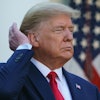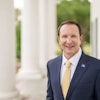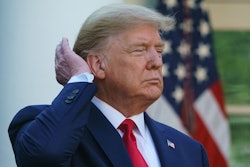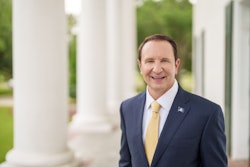WASHINGTON – In this globalized society, the need for intellectual collaboration across continents, cultures, institutions and disciplines is imperative in solving the scientific and technological mysteries that lie ahead, said panelists during the opening session Wednesday of the Higher Education Summit for Global Development at the Department of State.
Further explaining the need for collaboration among universities, business and foundations, Secretary of the Department of Energy Samuel Bodman said, “We are faced with a remarkable paradox. We need science and innovation to provide solutions to the problems that lie ahead, [yet] interest in science is waning. Reigniting the enthusiasm among young people in the areas science and mathematics is critical to a prosperous global future.”
The Higher Education Summit, sponsored by the U.S. Agency for International Development (USAID), a government agency that provides foreign assistance and humanitarian aid to foreign countries, allows higher educational institutions in developed and underdeveloped countries, foundations and private-sector businesses to build partnerships.
Over the course of three days, high-ranking governmental officials such as Secretary of State Condoleezza Rice, Secretary of Education Margaret Spellings and Henrietta H. Fore, director of USAID, along with 200 college presidents from around the world and others will be discussing “best practices” for developing cross-cultural, cross-continental initiatives.
Fore encouraged attendees to make at least two partnerships. Following her own advice, Fore finalized a memorandum of understanding with the National Science Foundation ensuring a future relationship between the two organizations. The agreement will allow NSF, an organization that funds domestic scientific research, and USAID, an organization chartered to fund international research, to leverage their resources creating more opportunities for scientists and researchers both domestically and internationally.
Fore also announced that USAID will be working with the National Association of State Universities and Land Grant Colleges (NASULGC) to build an African university capacity for instruction and problem-solving through the Africa-U.S. Higher Education Initiative. USAID pledged to provide $1 million to fund 20 partnership planning grants of $50,000 to plan long-term collaboration between African and U.S. institutions.
“I believe that education is a national security issue,” said Rice, suggesting that without access to education children can fall victim to the ills of society. “Each institution has an important role to play in the education of young people. We all know the better educated you are the better your economic well-being, but education is really a way to become who you want to be and not who you currently are.”
Dr. Saeeda Asadullah Khan, vice chancellor for the Fatima Jinnah Women University in Pakistan, was eager to participate in the discourse of fortifying higher education on a global scale. “The result comes from making connections and building linkages,” said Khan. “We have to follow through, of course. If we do not follow through, little is accomplished. But there is this energy and desire to learn from each other and share best practices.”
Dr. Beverly Tatum, president of Spelman College, said she has worked to utilize the global community to broaden the experiences of her students. “We are increasing the number of students that study abroad and working to ensure that every Spelman student has some meaningful international experience. Global education and global exchange is very important to Spelman as an institution,” Tatum said.
Tatum, who attended the Higher Education Summit for Global Development in 2006, was impressed to see the influx of international educators noting that their presence enhances the conversation of global educational development.
Click here to post and read comments
© Copyright 2005 by DiverseEducation.com


















